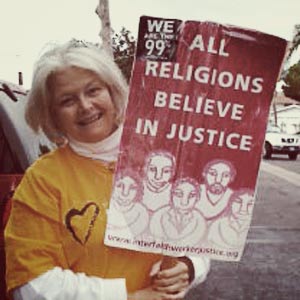 Blessings do indeed abound — often despite all indications to the contrary. Having been born in the USofA over 73 years ago, I have seen many changes — some good, some not so much. When I was a little girl living near Camp Drum, NY, I recall standing on our corner waving at US Army convoys as they drove past, carrying young soldiers to go to war in Europe.
Blessings do indeed abound — often despite all indications to the contrary. Having been born in the USofA over 73 years ago, I have seen many changes — some good, some not so much. When I was a little girl living near Camp Drum, NY, I recall standing on our corner waving at US Army convoys as they drove past, carrying young soldiers to go to war in Europe.
After the war, we moved to NYC, where I was introduced to the UN by one of my teachers, who moonlighted there as a simultaneous translator. After several years in her classroom, I became fairly fluent in French, so when we moved to California when I was 15, learning Spanish was quite easy.
My extended family includes one Cuban-born daughter-in-law, one from Vietnam, and several secular Jews. I like to think that my family is a lot like a miniature United Nations, and I am grateful for the international exposure I had as a child growing up in NYC. For me, I feel hopeful about the diversity in our nation, and continue to work toward helping that to become an aspect of our culture that we all can appreciate and embrace.
I do have concerns about some folks in our country who did not have the childhood experiences I did, so I work toward helping them to feel more comfortable with our demographic changes.
Here’s one description of community ministry I truly cherish: To comfort the afflicted and to afflict the comfortable!
So my job is first, to look after the oppressed people in our midst who struggle and who are suffering, while I also must address those who, like me, have had the benefits of privilege… so it’s up to us to make room at the table. This is the path I have chosen, and one I am grateful I can do freely.
“I do not pretend to understand the moral universe; the arc is a long one, my eye reaches but little ways; I cannot calculate the curve and complete the figure by the experience of sight; I can divine it by conscience. And from what I see I am sure it bends towards justice.” ~ Unitarian minister Theodore Parker, 1850s
Please support Story of America with a tax deductible donation.
